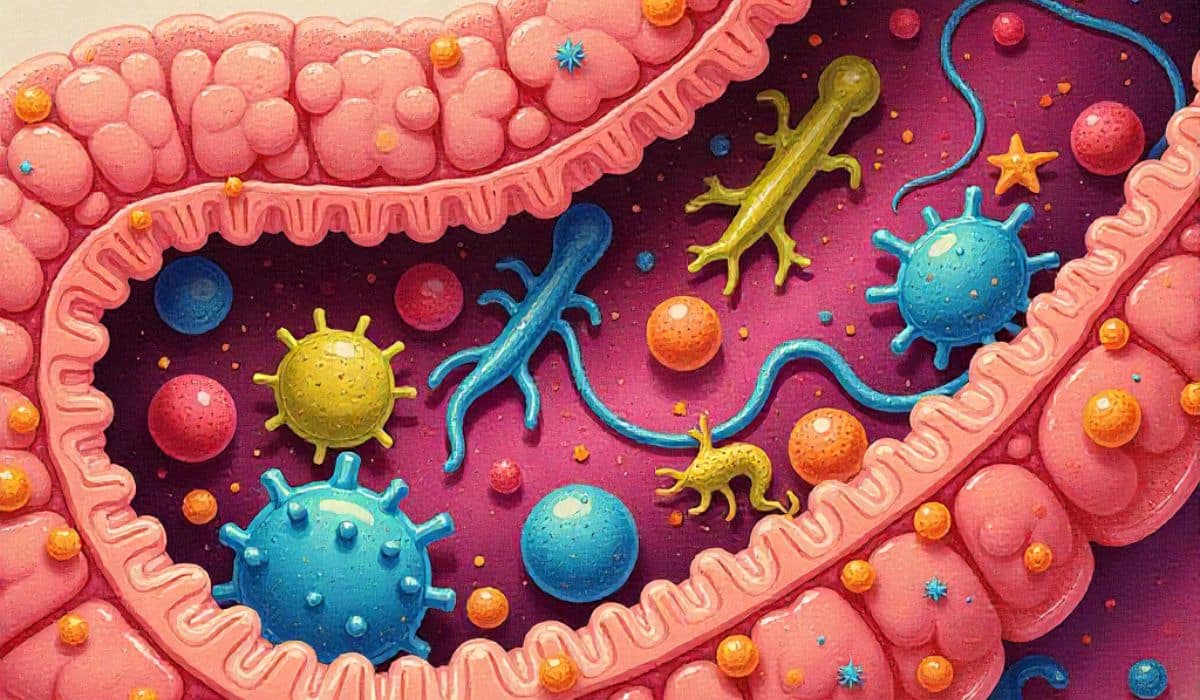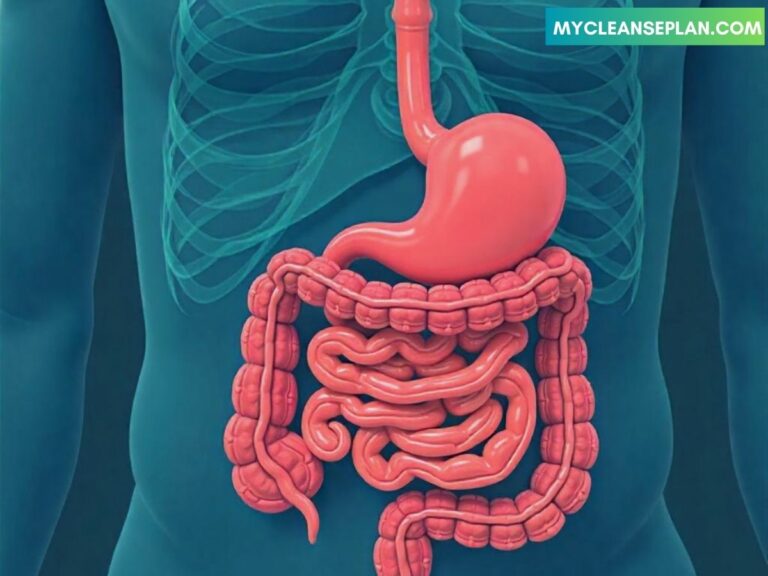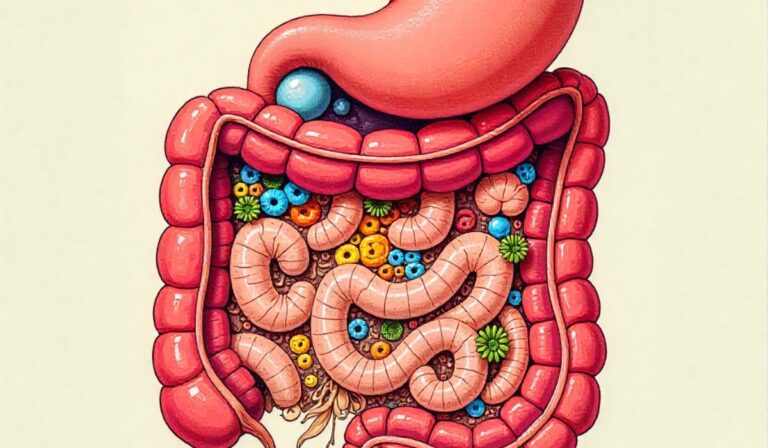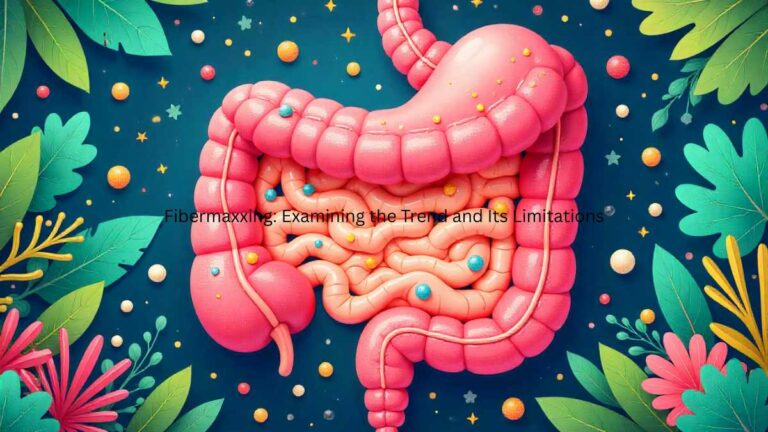10 Hydration Myths That Affect Gut Health: What You Need to Know
Key Takeaways
- You will debunk common myths surrounding how much water you need daily.
- You’ll gain insight into how hydration directly influences your gut microbiome.
- You will explore the hidden sources of hydration and their effects.
- You will learn how to identify the subtle signs of dehydration that you may be missing.
- You’ll discover strategies to optimize your hydration for improved gut function.
- You’ll get actionable advice to make small, impactful changes to your daily routine.
Picture this: You’re chugging water all day, feeling virtuous, convinced you’re giving your body exactly what it needs.
But what if some of what you “know” about hydration is actually hurting you? Perhaps you’ve heard that eight glasses of water is a magic number, or that any thirst means you’re already dehydrated.
This post is for you! We’re exploring the truth behind hydration myths and how they directly impact your gut health.
Prepare to discover the unexpected connections, get a clearer picture of optimal hydration practices, and learn how to support a happy, healthy gut.

The 10 Hydration Myths That Affect Gut Health
The human body is an incredible machine, and water is its lifeblood. From cell function to waste removal, staying adequately hydrated is essential.
Yet, despite its importance, misinformation about hydration runs rampant. These myths can lead to improper hydration practices, which, surprisingly, have a significant influence on your gut health.
Poor gut health can manifest in various ways, from bloating and gas to more severe issues like irritable bowel syndrome (IBS) or inflammatory bowel disease (IBD).
This list aims to untangle some commonly held beliefs and provide a clearer perspective on how water impacts the complex ecosystem within your gut, and what you should consider when thinking about your daily water intake.
1. You Need to Drink Exactly Eight Glasses of Water a Day
The “eight glasses a day” rule is arguably the most pervasive hydration myth. While it’s a simple guideline, it’s not necessarily accurate or applicable to everyone.
Your individual hydration needs depend on several factors, including your activity level, climate, diet, and overall health.
For instance, an athlete training in a hot environment will require significantly more water than someone with a sedentary lifestyle in a temperate climate.
Relying solely on this arbitrary number can lead to overhydration or underhydration, neither of which is beneficial for your gut.
The origin of this myth is not completely clear, but one theory suggests it was based on general health guidelines that didn’t fully account for hydration from food.
Many foods, particularly fruits and vegetables, have a high water content. The eight-glass rule doesn’t account for these contributions, leading people to believe they need to drink more than they actually do.
Other beverages also contribute to your daily fluid intake. It is essential to listen to your body and adjust your water intake based on your individual needs and thirst signals.
Adjusting Water Intake Based on Activity
- Low Activity: If you work at a desk job and live in a cool climate, you may not need as much water. Pay attention to thirst and aim for consistent intake throughout the day.
- Moderate Activity: If you are moderately active (e.g., you walk, swim, or engage in yoga several times a week), increase your water consumption. Keep a water bottle handy and sip throughout the day.
- High Activity: Athletes and those who engage in strenuous physical activity need more water. You can determine how much water you are losing by weighing yourself before and after exercise, and replenishing the difference.
2. Thirst Is the Only Indicator of Dehydration
While thirst is a clear signal that your body needs fluids, it’s not the only sign. Waiting until you’re thirsty means you’re already slightly dehydrated.
Other, more subtle, signals can indicate your body’s need for water, and if you are ignoring these signs, your gut health could be suffering.
Ignoring them could put an additional burden on your gut microbiome, affecting its ability to function optimally.
Recognizing these other signs is crucial for maintaining adequate hydration and, therefore, supporting gut health.
Consider the role of saliva production. When your body becomes dehydrated, saliva production decreases. This can lead to a dry mouth, making swallowing difficult.
This lack of saliva can disrupt the breakdown of food, adding more work to your digestive system. Additionally, chronic dehydration can lead to constipation and decreased bowel motility.
These factors combine to create an environment that’s less favorable for your gut microbiome. Chronic dehydration can also make it harder for the beneficial bacteria to thrive, potentially resulting in an imbalance (dysbiosis).
Other Signs of Dehydration
- Dark Urine: A reliable indicator of dehydration; ideally, your urine should be pale yellow.
- Fatigue and Dizziness: These symptoms can occur due to reduced blood volume, affecting blood flow to the brain and other organs.
- Headaches: Dehydration can trigger headaches, potentially due to reduced blood flow.
- Constipation: Insufficient water intake can harden stools, making them difficult to pass.
3. All Beverages Hydrate Equally
Not all drinks are created equal when it comes to hydration. While water is undoubtedly the best choice, other beverages can contribute to your daily fluid intake, while others can be actively dehydrating.
Understanding the impact of different beverages on hydration levels is crucial for optimal gut health.
Some beverages may interfere with nutrient absorption or irritate the gut lining, indirectly affecting the delicate balance of the gut microbiome.
Caffeinated beverages like coffee and tea can have a mild diuretic effect, which means they can increase urine production, potentially leading to fluid loss.
Sugary drinks such as soda and juice can also hinder hydration due to their high sugar content, which can interfere with the absorption of water in the intestines.
These beverages can also promote inflammation in the gut and contribute to an imbalance in the gut microbiome. Choosing the right drinks is essential for keeping your gut happy and healthy.
Hydration Ranking of Beverages
- Water: The gold standard of hydration, plain water is calorie-free, readily absorbed, and supports all bodily functions.
- Herbal Teas: Many herbal teas, like chamomile or peppermint tea, can be hydrating while also offering other health benefits.
- Unsweetened Beverages: If you need flavor, consider unsweetened beverages.
- Coffee and Caffeinated Tea: Can contribute to hydration, but consume in moderation due to diuretic effects.
- Sugary Drinks and Alcohol: Best consumed in moderation or avoided as these can hinder hydration and impact gut health negatively.
4. Electrolytes Are Only Necessary During Intense Exercise
Electrolytes play a critical role in maintaining fluid balance, nerve function, and muscle contractions.
They are lost through sweat, and while they are particularly important during strenuous exercise, they are also essential in everyday life to help maintain a healthy gut.
The gut uses electrolytes to move water in and out of the intestinal cells, impacting the proper absorption of nutrients, and this is why their role cannot be overstated.
A balanced electrolyte level promotes optimal hydration and supports the functioning of the gut microbiome.
Electrolyte imbalances can affect gut function in several ways. For example, sodium and potassium are vital for nutrient absorption and can influence gut motility.
When electrolyte levels are off, it can result in symptoms such as diarrhea or constipation, which can, in turn, harm the delicate balance of the gut microbiome.
While it’s true that you’ll lose more electrolytes with strenuous exercise, you can experience electrolyte depletion even during regular daily activities, particularly in hot weather or if you have certain health conditions. Electrolyte-rich foods or drinks can be beneficial in certain circumstances.
When to Prioritize Electrolyte Replenishment
- After Intense Exercise: Replenish electrolytes lost through sweat.
- During Illness: If you’ve been vomiting or have diarrhea, you need to replenish these nutrients.
- In Hot Weather: Increased sweating can lead to electrolyte loss.
- Certain Medical Conditions: Some conditions, like kidney disease, can affect electrolyte balance.
5. Drinking Water During Meals Dilutes Digestive Juices
This is a widely circulated myth that suggests drinking water while eating can hinder digestion by diluting the stomach acid and digestive enzymes.
The fear is that this will result in poor food breakdown and digestion. While excessive water consumption at mealtimes can slightly dilute stomach acid, this is rarely a significant issue.
Your stomach is designed to regulate its acid production and can easily compensate for minor fluctuations in dilution. In fact, drinking water with meals can provide multiple benefits for your gut and digestive process.
Water facilitates the breakdown of food, making it easier for your digestive system to process nutrients.
Adequate hydration promotes smoother passage of food through the digestive tract, aiding in the prevention of constipation.
Proper hydration contributes to the production of mucus in the gut, which protects the gut lining. Having enough mucus is essential in preventing inflammation and supporting the health of the gut microbiome.
Water doesn’t hinder digestion, and it can assist in the digestive process. A glass of water with your meals could assist in nutrient absorption, preventing bloating and gas, and supporting overall gut health.
Benefits of Drinking Water With Meals
- Helps with Food Breakdown: Aids the digestive process, making nutrients more accessible.
- Prevents Constipation: Facilitates smooth food passage through the digestive tract.
- Protects the Gut Lining: Contributes to mucus production.
- Improves Nutrient Absorption: Supports the absorption of essential vitamins and minerals.
6. You Can’t Overhydrate
While dehydration is a serious health concern, overhydration, known as hyponatremia, is also dangerous.
Hyponatremia occurs when blood sodium levels become dangerously diluted, which can happen if you consume excessive amounts of water without replenishing electrolytes.
Electrolytes are essential for many functions within the body. While rare, overhydration can lead to potentially life-threatening conditions.
Hyponatremia causes cells throughout the body to swell, and the brain is particularly vulnerable. Symptoms can range from mild, such as nausea and headaches, to severe, like seizures, coma, and even death.
The kidneys are able to eliminate excess water, but only up to a certain point. If you drink too much water in a short period, the kidneys can’t keep up, leading to a build-up of fluid in the body. When it comes to hydration, moderation and paying attention to your body’s signals are key.
Signs of Overhydration
- Nausea and Vomiting: Early signs that can indicate a disturbance of electrolytes.
- Headaches: Result from swelling of brain cells.
- Confusion and Disorientation: Indicate brain function is affected.
- Muscle Weakness: Can occur due to electrolyte imbalance.
- Seizures: A severe symptom of very low sodium levels.
7. All Bottled Water Is Created Equal
The bottled water market is vast, and the quality and source of bottled water vary greatly. Many bottled waters are simply tap water that’s been filtered, while others are sourced from springs or artesian wells.
The difference lies in the mineral content, pH levels, and overall purity. This information is key, as the mineral composition can affect your gut health directly, and not all water offers the same benefit.
Some types of water have added minerals and may even support gut health, while others lack these benefits.
The quality of bottled water is also essential for what it doesn’t contain: contaminants. Some bottled waters might be exposed to plastic leaching.
Plastic bottles can release chemicals into the water, and these chemicals may have unintended consequences for the gut microbiome. When selecting bottled water, checking the label is essential.
Look for water from a trusted source, and consider water with added minerals that may be beneficial for gut health. If you are concerned about contaminants, opt for glass bottles instead of plastic.
Key Considerations for Bottled Water
- Source: Choose water from natural springs or artesian wells.
- Mineral Content: Some waters contain beneficial minerals like magnesium and calcium.
- pH Level: Slightly alkaline water might be easier to digest.
- Packaging: Opt for water in glass bottles to avoid plastic leaching.
8. You Should Only Drink Water When You’re Thirsty
Waiting until you are thirsty is better than being in a dehydrated state, but it is not optimal. Relying solely on your thirst signals to guide your hydration can leave you in a state of mild dehydration throughout the day.
Your thirst mechanism can sometimes be delayed or suppressed, particularly in older adults, so by the time you feel thirsty, your body may already be experiencing some impact.
Hydration is essential for every biological function, and continuous, steady hydration is better for your gut.
Dehydration can affect gut function. It can lead to constipation, decrease the production of digestive enzymes, and contribute to an imbalance in the gut microbiome.
Preventative hydration is the key to maintaining a healthy gut. You should aim to drink water consistently throughout the day, even when you don’t feel thirsty.
Set reminders to drink water at regular intervals, carry a reusable water bottle with you, and sip water throughout the day.
Pairing water with your meals ensures that you’re supporting your digestive processes and overall gut health.
Consistent Hydration Strategies
- Set Reminders: Remind yourself to drink water.
- Carry a Water Bottle: Keep a reusable water bottle with you.
- Drink With Meals and Snacks: This will help support digestion.
- Monitor Urine Color: Aim for pale yellow urine to indicate good hydration.
9. Adding Lemon or Other Flavors Negatively Impacts Hydration
Adding lemon, cucumber, or other flavors to your water doesn’t negatively impact hydration. Flavored water can actually be a clever method to increase water intake for people who find plain water boring.
The addition of fruits, vegetables, and herbs doesn’t impair water absorption or reduce its hydrating effects.
It can even provide additional health benefits. Some flavors might introduce vitamins, minerals, and antioxidants into your diet.
This will increase your body’s support system, leading to better digestion and helping keep your gut happy and healthy.
The concern that adding flavors may hinder hydration isn’t supported by scientific evidence. Instead, the opposite is true: adding flavors can often make water more appealing, leading you to drink more.
This is particularly beneficial for those who struggle to meet their daily water goals. Consider the ingredients you’re using.
While lemon can add flavor and vitamin C, other additions may bring their own digestive benefits.
The key is to avoid using sugary syrups or artificial sweeteners, which may negatively affect your gut health. In general, flavored water can be a healthy way to support your daily water needs.
Benefits of Flavored Water
- Increased Water Intake: Enhances water intake, especially for those who dislike plain water.
- Added Nutrients: Provides additional vitamins and antioxidants, supporting overall health.
- No Negative Effects: Adding flavors doesn’t hinder hydration.
- Variety of Options: Encourages experimentation with different ingredients.
10. Coffee Can Substitute for Water
Coffee contains water, so it can contribute to your daily fluid intake. However, coffee is also a diuretic, meaning it can increase urine production, potentially leading to fluid loss.
Because of this, it’s not ideal to rely solely on coffee for hydration. While coffee can contribute to your daily fluid count, it’s essential to balance coffee consumption with sufficient water intake.
Consider the impact of coffee on your digestive system. Coffee can stimulate bowel movements in some individuals, and excessive consumption may lead to stomach upset or even diarrhea.
The impact of coffee on your gut health can vary. For some, coffee can have beneficial effects, such as promoting healthy bowel movements and providing a source of antioxidants.
However, for others, coffee can irritate the gut lining or exacerbate symptoms of existing digestive issues. If you are a coffee drinker, it is important to pay close attention to how your body responds.
Make sure you’re getting enough water to offset any potential diuretic effects. Aim to consume coffee in moderation, and be sure that you are prioritizing water as your primary source of hydration.
Coffee and Hydration: Key Considerations
- Diuretic Effect: Be mindful of coffee’s potential to increase urine output.
- Balance With Water: Drink water alongside coffee to stay hydrated.
- Individual Tolerance: Pay attention to how your body responds to coffee.
- Moderation: Avoid excessive coffee consumption.
FAQ Of 10 Hydration Myths That Affect Gut Health: What You Need to Know
Can I drink too much water?
Yes, excessive water intake can lead to hyponatremia, where the sodium in your blood becomes diluted, leading to various health issues.
Does drinking ice water hydrate you faster?
There’s no scientific evidence that ice water hydrates you faster than water at other temperatures.
How can I tell if I’m dehydrated?
Aside from thirst, signs of dehydration include dark urine, fatigue, headaches, and constipation.
What’s the best way to stay hydrated?
Drink water consistently throughout the day, pay attention to thirst and other dehydration signals, and choose hydrating beverages.
What role do electrolytes play in hydration?
Electrolytes help balance fluids in your body, and are important for nerve function and muscle contractions.
Final Thoughts
Exploring the world of hydration myths can be a bit like walking through a funhouse, where the truth gets distorted.
The importance of gut health is being discussed more frequently, and we are now more aware of the gut microbiome’s role in our overall wellness.
Many people have a misunderstanding of how hydration connects with their digestion. We’ve debunked common misconceptions.
Now you have a better understanding of how much water you really need, how to recognize the subtle signs of dehydration, and the impact of different beverages.
The goal is simple, you should drink when you are thirsty, but also hydrate throughout the day. Listen to your body, choose water as your primary beverage, and perhaps even experiment with adding flavor to keep things interesting.
Small changes in your routine can have a significant impact on your gut health. Drink water and take care of your gut, your body will thank you!


![New Year, New Gut Resolutions That Actually Help[1]](https://mycleanseplan.com/wp-content/uploads/2025/11/New_Year_New_Gut__Resolutions_That_Actually_Help1-768x448.jpg)

![Gut Health Tips for Runners, Athletes & Endurance Fueling Performance[1]](https://mycleanseplan.com/wp-content/uploads/2025/11/Gut_Health_Tips_for_Runners_Athletes__Endurance__Fueling_Performance1-768x448.jpg)

